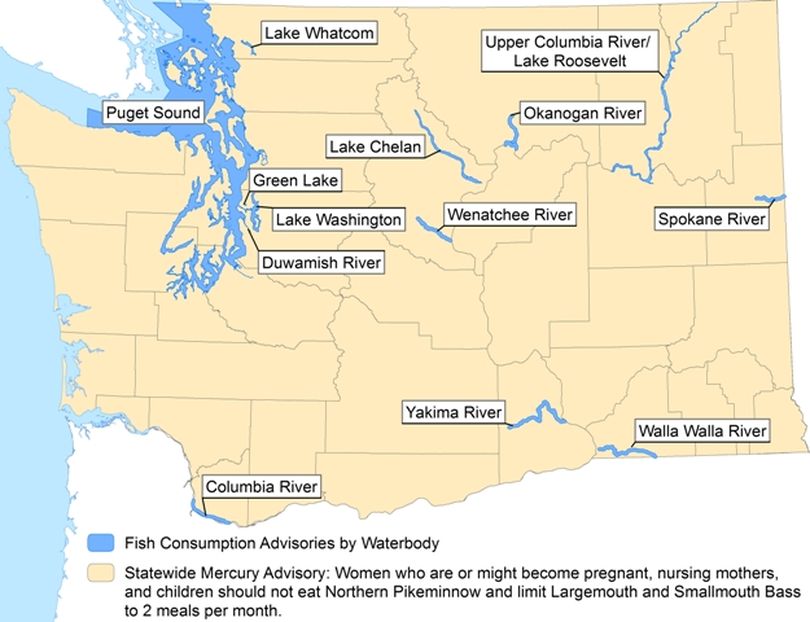Ecology Department reconsidering fish consumption advisories

FISHING -- The Washington Department of Ecology is asking fish managers, researchers and consumers to comment by Dec. 30 on a plan to update outdated state fish consumption rates, such as the number of meals of bass one might eat per month before ingesting a toxic load of PCBs.
The rates also are used to identify areas for cleanup.
Washington's current consumption rates were established 20-30 years ago.
Scientists say contamination loads are too high among certain species of fish in certain rivers, lakes or ocean areas. They are particularly concerned about pregnant women and their unborn children.
Ecology's "fish consumption rates" are related but different to the current fish consumption advisories by water body, issued by the state Department of Health.
Read on for an explanation:
Sandy Howard, communications staffer for the Washington Department of Ecology says the state Department of Health’s fish advisories are different than the Department of Ecology’s work to develop more accurate fish consumption rates for Washington.
- The Department of Health issues fish consumption advisories to protect public health. The public health advisories aim to protect people who eat certain fish from being exposed to contaminants in fish above a level of health concern.
- The state Department of Ecology uses fish consumption rates as a basis for environmental cleanup and water pollution control.
"Once our state agrees to -- and begins using -- a more accurate fish consumption rate, Washington will receive environmental benefits because this work is about pollution prevention and environmental cleanup," Howard said.
"The Department of Health issues advisories based on multiple factors including the health benefits of eating fish which can outweigh the risk when contaminant levels are very low."
The two agencies are aware of each others’ work and keep each other in the loop, she said.
